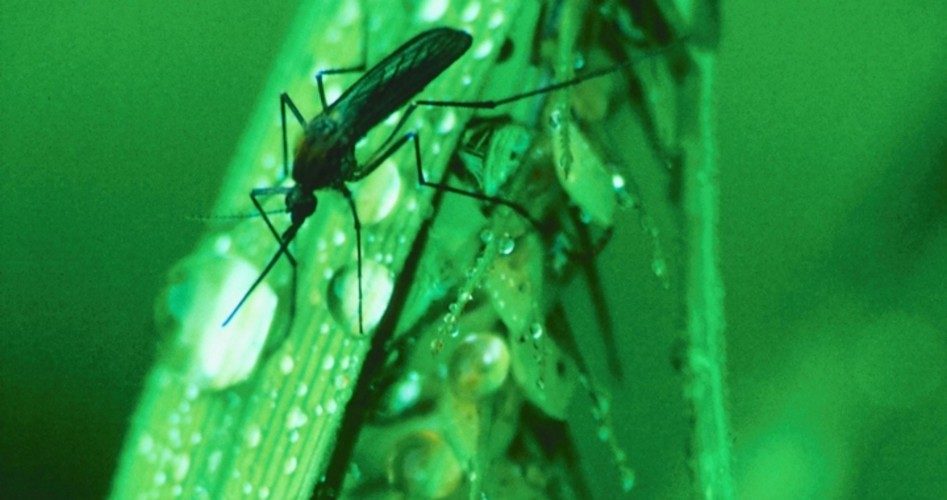
Florida residents are launching an opposition campaign against the release of genetically modified mosquitoes in the Florida Keys to combat the Zika virus. Opponents contend that the release of the “mutant bugs” is likely to have unintended consequences and should not be done against the will of the people, particularly without “third-party, peer-reviewed research.”
The Washington Times reports that British company Oxitec has programmed genetically modified male mosquitoes to produce offspring that would die before adulthood. The company claims that genetically modified adult males means inhibiting the spread of the Aedes aegypti mosquito, which carries the Zika virus.
According to the Times, the proposal to release the genetically modified mosquitoes dates back to 2011, when a mosquito director asked Oxitec to help control dengue, a flu-like illness spread through mosquitoes. The Times reports that the “emerging Zika threat has breathed new life into the proposal.”
Earlier this year, after the World Health Organization (WHO) declared the Zika virus a global threat, the Washington Post reported that health officials were surprised by the sudden development of the virus as a global concern. The paper indicated that the virus had popped up all over the world for decades, with its victims suffering only mild symptoms that subsided, resulting in complete recovery, with the exception of rare complications. But the recent outbreak seems to coincide with increased reports of brain-damaged infants, provoking concerns that Zika’s impact on fetal development is both significant and dangerous.
Health officials are extremely concerned by the causal relationship between ZIka and a congenital condition called microcephaly, in which babies are born with abnormally small heads and suffer from brain damage. The Zika virus is projected to infect up to four million people by the year’s end, according to the WHO.
“Even the clusters of microcephaly alone are enough to declare a public health emergency because of its heavy burden on women, families and the community,” stated WHO Director-General Margaret Chan.
The role that mosquitoes have played in the spread of Zika has officials scrambling to find solutions, but not enough of them are advocating for lifting the ban on the powerful insecticide DDT that in the past has saved countless lives. After all, DDT nearly eradicated malaria until its ban, which once again brought about a rise in malaria deaths in many areas back to pre-DDT levels by 1997.
Instead, officials are advocating solutions such as the genetically modified mosquitoes that have not undergone proper testing. These mosquitoes are set to be tested in Key Haven, Florida, but residents have raised concerns over the impact that the genetically modified organisms will have on the human populations and the environment.
“I’m angry now. They’re doing it against the will of the people,” declared Mila de Mier, a Key West resident who started a petition against the trial. De Mier has raised numerous concerns regarding the mosquitoes, noting that they are sure to negatively impact tourism, a vital component to the local economy.
De Mier’s Change.org petition against the project, which has received more than 164,000 signatures, questions why the mosquitoes are being considered in spite of the opposition from local residents:
The company wants to use the Florida Keys as a testing ground for these mutant bugs. Even though the local community in the Florida Keys has spoken — we even passed an ordinance demanding more testing — Oxitec is trying to use a loophole by applying to the FDA for an “animal bug” patent. This could mean these mutant mosquitoes could be released at any point against the wishes of locals and the scientific community. We need to make sure the FDA does not approve Oxitec’s patent.
The petition also cites numerous cases in which the use of genetically modified organisms has brought about unintended negative consequences:
Nearly all experiments with genetically-modified crops have eventually resulted in unintended consequences: superweeds more resistant to herbicides, mutated and resistant insects also collateral damage to ecosystems. A recent news story reported that the monarch butterfly population is down by half in areas where Roundup Ready GM crops are doused with ultra-high levels of herbicides that wipe out the monarch’s favorite milkweed plant.
And de Mier raises compelling questions about the lack of testing on the genetically modified mosquitoes and the impact that they could have on Florida’s animal and insect populations, as well as on the very illnesses Oxitec seems to eradicate:
What about our native species of Florida Keys Bats. Are there any studies being conducted to see if these mosquitoes will harm the native bat population? Why would we not expect GM (genetically modified) insects, especially those that bite humans, to have similar unintended negative consequences? Will the more virulent Asian tiger mosquito that also carries dengue fill the void left by reductions in A. aegypti? Will the dengue virus mutate (think antibiotic resistant MRSA) and become even more dangerous?… Dengue fever has been absent from the Florida Keys for years, which indicates the current methods of control and public education are working. What’s the rush for this radical approach?
Oxitec says that not only has its treatment been tested in places such as the Cayman Islands, but that male mosquitoes — the insects it is breeding — do not bite humans or other animals and they are highly unlikely to have any negative effects.
In response, the Food and Drug Administration, which is well-known for approving genetically modified organisms without thorough testing or scientific understanding of their long-term effects, has issued a preliminary finding which states that Oxitec’s proposal does not appear to pose a risk to humans.
But that has done little to assuage the concerns of the many skeptics, who have taken to the public comments forum on the FDA’s website to express their opposition. In fact, the proposal has garnered so much attention that the FDA has announced that it would extend the comment period to May 13.
“This extension of the comment period is intended to allow the public greater time to read and consider the environmental assessment and preliminary finding of no significant impact so that they may submit informed comments to the FDA,” the FDA’s statement reads. “The FDA will thoroughly review all public comments and information submitted before determining its next steps.”
Comments submitted to the FDA thus far seem to confirm de Mier’s fears that the release of the mosquitoes would deter some from visiting the area. Others opposed to the plan voiced concerns over the ethical implications of releasing mutant insects into the population. “Not only is Oxitec’s assessment fantasy, it is unethical as well,” wrote Stan Benton. “Oxitec wants to expose unwilling Keys residents to their GE mosquitoes. Hundreds of Keys residents have made it quite clear: They do not consent to being part of the experiment.”
As of April 11, 1,106 comments were posted on FDA’s website. The latest reads, “Don’t do it, GMOs are terrible.”
Anyone interested in sharing their perspectives on the proposal can click here to do so.




